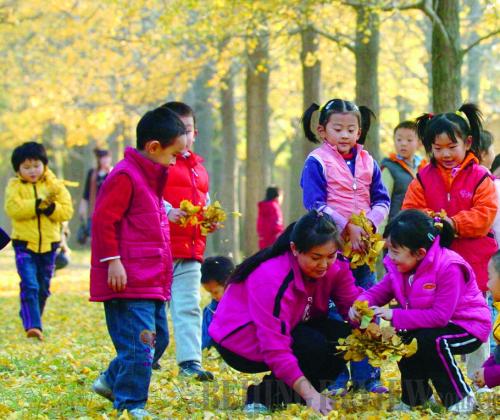|
 |
|
(PHOTO BY ZHANG SHANCHEN) |
Solar Term 19: Beginning of Winter (Li Dong)
Gregorian date: November 7 or 8
Lunar date: Early in the 10th month
During the li dong period, the winter planting of wheat and barley needs to be completed. As a proverb says, "Planting wheat should be finished before the passing of li dong." Fertilizer is spread in wheat and barley fields. Vegetables like carrots are harvested and the fields are replanted with wheat. Ham curing season also starts from li dong and lasts until Severe Cold or da han, the last solar term of the year.
According to the five elements theory of traditional Chinese medicine, winter corresponds with the kidneys, which are highly active in the winter months. Kidneys have an active storage function which helps save energy. In order to reduce their workload, it's best to eat more food with bitter flavors and reduce salt intake.
People in winter have hearty appetites and a lower metabolic rate that enables absorbed nutrients to be stored more easily. Uncooked, frozen foods and foods that are too much hard or glutinous should be avoided, as they damage the spleen and stomach. Appropriately-fried food should be consumed to retain warmth. Good winter foods include mutton, duck, dates, eggs, black fungus, leeks, nuts and Chinese yam.
Solar Term 20: Slight Snow (Xiao Xue)
Gregorian date: November 22 or 23
Lunar date: Middle of the 10th month
Slight snow or xiao xue usually comes around November 22 on the solar calendar, indicating the beginning of light snowfalls.The agricultural slack season has set in.
During the winter months, people usually eat heavier foods. This, combined with dry climates, will deplete fluids in the body and result in dry heat inside the stomach and intestines. The Chinese believe that in winter cold air invades the human body, and causes a deficiency of yang qi (yang energy) internally. At the same time, dry air reduces the body's fluids, leading to excess heat inside the body and increasing dryness in the mouth, nose and throat.
Ancient Chinese doctors used to suggest going to bed early and waking after the sun's warming rays appeared in the morning. It's advisable to drink a small cup of wine in the morning to expel the cold, and take herbs that eliminate internal heat in the evening. These habits will harmonize the heart's qi.
To proactively protect against winter ailments, cooking warm and delicious soups using certain special ingredients is recommended. These soups can expel cold, clear up dryness, moisten the lungs, replenish kidney-yang and nourish kidney-yin. Examples of ideal winter soup ingredients include chestnuts, ginseng, longan, lotus root, sea coconut, snow fungus and wolfberries. So drink up, stay warm and keep hydrated. |